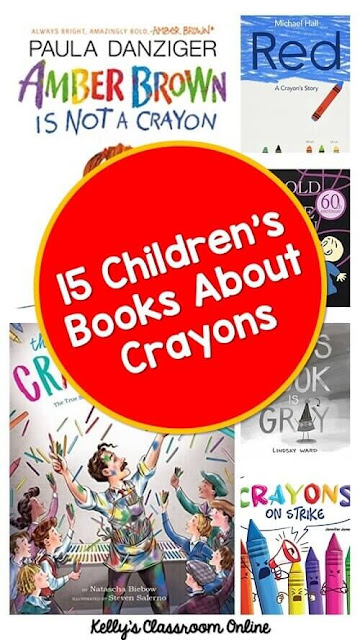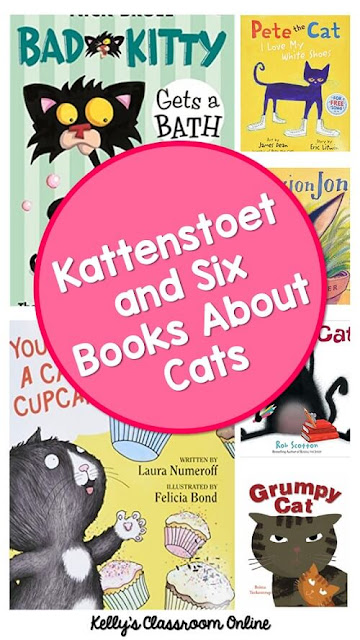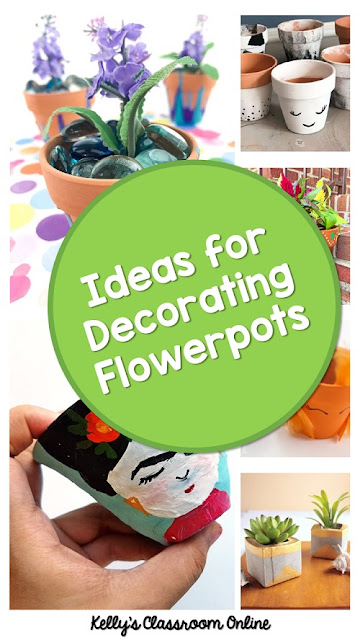Predator vs. Prey: The Food Chain Game
Animals and food chains are popular topics for children to learn during science
class. There are many books and crafts available about food chains that make
children excited about what they're learning. This post is about
The Food Chain Game which children can play outdoors during science,
STEM, and even recess. Keep reading to learn more!
Phases of the Moon STEM Activity + FREE Printable
Students in second and third grade are often introduced to the basics of
astronomy in science class. They learn about how Earth rotates on its axis every
24 hours causing night and day and how a year is measured by its revolution
around the sun. They learn about how the moon revolves around Earth every 29.5
days and its effect on the tides. And, they learn how sunlight reflecting off
the moon's surface and Earth's shadow interact to cause the phases of the moon
that we see at night. The STEM minilesson below can be used to enrich your
science and STEM lessons and activities about the moon. Keep reading to learn
more!
Can You Grow Pine Trees From Seeds? STEM Activity
I remember when I was a little girl, I loved going outside and collecting
pinecones. Some pinecones I'd paint and decorate with glitter. Others I'd
smother with peanut butter and birdseed and give to the squirrels. And, others
I'd keep in a basket on my front porch just because they were pretty and I liked
how they smelled. It wasn't until I was older that I learned how important
pinecones are to a tree's life cycle.
This is a simple STEM activity that you can use during your science lessons
about trees, tree life cycles, habitats, and the environment. It can also be
used as an Earth Day activity. Keep reading to learn more!
15 Children's Books About Crayons
I just found out that today... March 31st... is National Crayon Day. National
Crayon Day is a day in which people celebrate the joy of coloring. It is also
the day that Crayola typically retires old crayon colors and introduces its new
ones. (As far as I know, no new colors were added this year-- 2023. No colors
were retired as well.) Listed below are 10+ children's books about crayons,
markers, and other coloring supplies that'd be fun for children to read. Fiction
and nonfiction books for all ages are included. Keep reading to rediscover some
old classics and possibly find new favorites.
Kattenstoet and Six Books About Cats
Every three years during the month of May, people in Ypres, Belgium participate
in a festival specifically dedicated to cats. Yes, to cats! (I love cats.) This
festival is called Kattenstoet or Kattenfestival. On this day,
people attend Kattenstoet parades, dress up in cat costumes, and toss stuffed
toys cats in the air. Sounds like fun, yes? Keep reading to learn more about
Kattenstoet and for a quick list of children's books about cats.
Craft Ideas for Making and Decorating Flowerpots
In my most recent blog post, I created
a list of easy-to-grow flowers
you can grow in your classroom. This blog post contains a round-up of
flowerpot crafts that you can make and decorate for those flowers. The
flowerpots featured in this round-up were created by moms and teachers from
all over the internet. If you see a craft in this post that you'd like to try,
click on its link and head to its original website for material lists,
directions, photos, etc. There are lots of terrific craft ideas in this post,
so let's dive right in!
12 Easy to Grow Flowers for Your Classroom
Spring is coming and now is a good time to plan your upcoming plant and plant
life cycle units. Many teachers integrate planting seeds into their science
units at this time of year, then use the newly sprouted seedlings as gifts for
Mother's Day. Listed below are some photos and basic information about 12
easy-to-grow flowers that'd be perfect for your indoor gardening activities.
Enjoy!
Your Life Matters! by Chris Singleton
Multicultural Children’s Book Day (MCBD) is in its 10th year! This non-profit children’s literacy
initiative was founded by Valarie Budayr and Mia Wenjen; two diverse book-loving moms who saw a need to shine the spotlight on all
of the multicultural books and authors on the market while also working to get
those books into the hands of young readers and educators.
Each year authors and publishing companies provide multicultural children's
books for educational bloggers and social media influencers to read and write
about online. In previous years, I've written about Hi, My Name is Jenny, A Unicorn Ate My Homework, Evelyn Del Rey Is Moving Away, and From My Window. This year, I was given a copy of Your Life Matters by Chris Singleton to read. Keep reading to learn more about Your Life Matters and how you can integrate it into your social studies lessons.
How to Make Jello Outside in the Snow
Children in elementary school start learning about the states of matter, the
properties of matter, and how matter changes when heat is added or removed from
it. Making this tasty jello snack with your students is a fun way to integrate
simple cooking skills into your science and STEM lessons about matter. Keep reading to find
out how!
Do Squirrels Eat Pumpkins?
Have you ever looked out of your window to watch the squirrels gather food for
the winter? Have you ever wondered what they like to eat? Squirrels aren't picky
and will eat almost anything. We know they like to eat acorns, pecans, berries,
apples, vegetables from the garden, and seeds just to name a few. Sometimes
squirrels will eat food meant for other animals such as birdseed, cat food, and
even dog food. But... do squirrels like to eat pumpkins? Check out this science
and STEM experiment we conducted to try and answer this question.
Subscribe to:
Comments (Atom)










